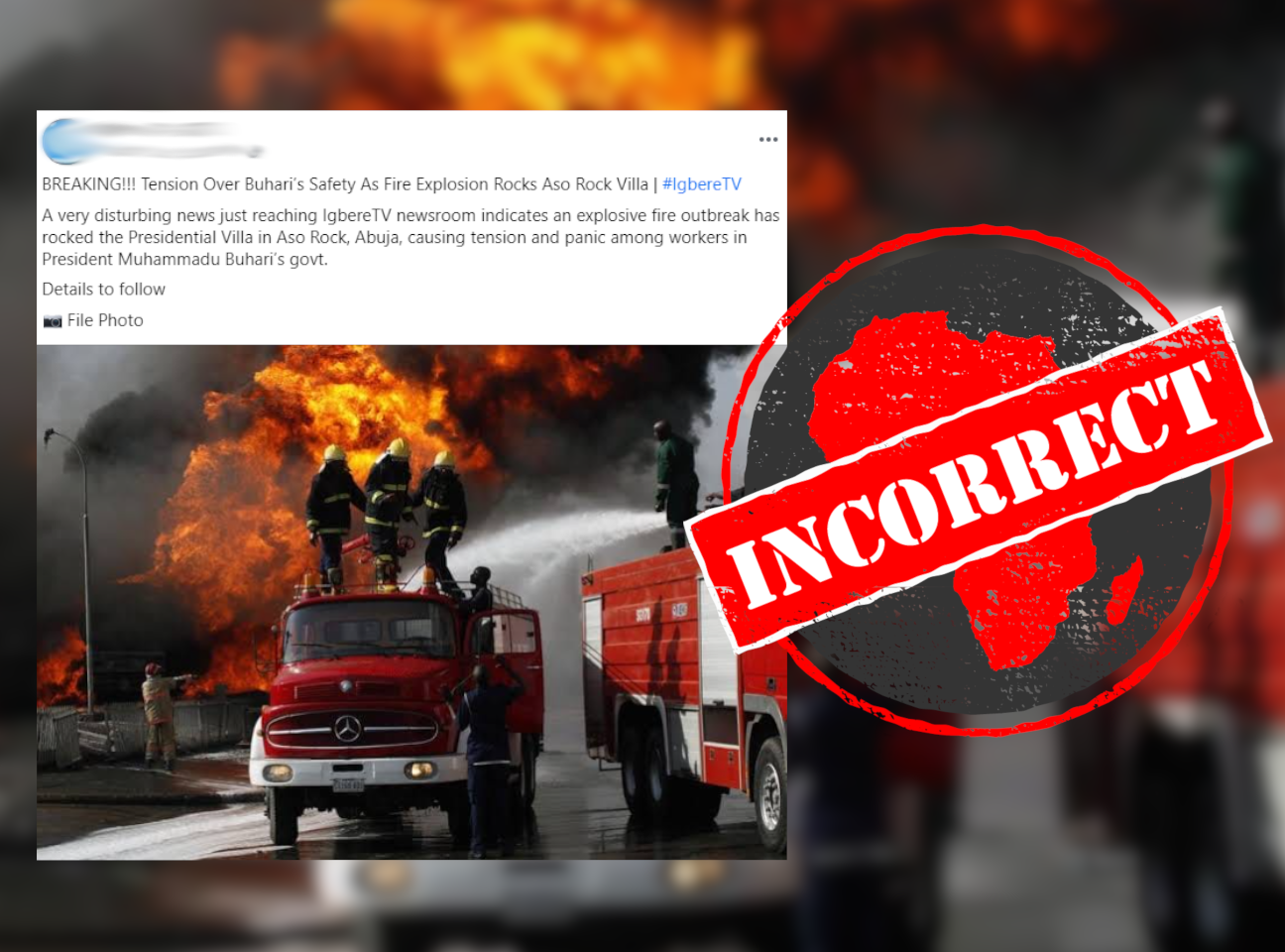“BREAKING!!! Tension Over Buhari’s Safety As Fire Explosion Rocks Aso Rock Villa,” begins a message posted on Facebook in early March 2021.
Muhammadu Buhari is president of Nigeria, and the Aso Rock Villa in Abuja, the country’s capital, is the presidential residence.
“A very disturbing news just reaching IgbereTV newsroom indicates an explosive fire outbreak has rocked the Presidential Villa in Aso Rock, Abuja, causing tension and panic among workers in President Muhammadu Buhari’s govt,” the message continues.
It shows a photo of firefighters trying to put out a huge fire, but says this is a file photo.
Was there a “fire explosion” at Buhari’s residence that caused “tension” about his safety? We checked.

Claim debunked by the presidency
Nigeria’s presidency has debunked the claim, saying that a bush fire broke out between a fence and an outer wall surrounding the presidential villa, and Buhari was not in harm’s way.
“I would like to clarify that there was no fire inside the Presidential Villa,” presidential spokesperson Garba Shehu explained in a Twitter thread.
“In the evening of Saturday, March 6, a fire broke out burning shrubs between the outer wire fence and walls surrounding the Villa, precisely in the area between the Villa and the Barracks, towards Asokoro.”
I would like to clarify that there was no fire inside the Presidential Villa.
— Garba Shehu (@GarShehu) March 7, 2021
“The fire, as being speculated, might have started from a passerby dropping a burning cigarette. The Federal Fire Service will ascertain the reason for it when they complete their investigation.
“It suffices to say that this bush fire, which started and ended outside the perimeter walls of the Villa, was seamlessly contained by fire stations of the State House and the one nearby from the Federal Fire Service.
“No loss of life, no loss whatsoever to building and property was recorded."
Republish our content for free
For publishers: what to do if your post is rated false
A fact-checker has rated your Facebook or Instagram post as “false”, “altered”, “partly false” or “missing context”. This could have serious consequences. What do you do?
Click on our guide for the steps you should follow.
Publishers guideAfrica Check teams up with Facebook
Africa Check is a partner in Meta's third-party fact-checking programme to help stop the spread of false information on social media.
The content we rate as “false” will be downgraded on Facebook and Instagram. This means fewer people will see it.
You can also help identify false information on Facebook. This guide explains how.


Add new comment